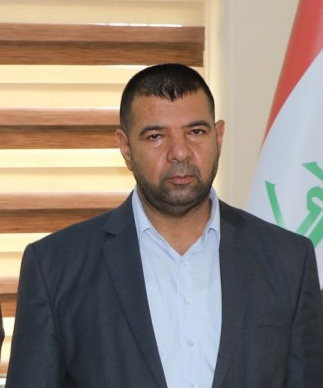
د. مجيد محمد مضعن
Howard Barker: Theatre and Censorship
هاورد باركر: المسرح والرقابة
Majeed Mohammed Midhin (PhD in Literature)
College of Education for Humanities-Dept. of English
University of Anbar/Iraq
majeed.mohammed@uoanbar.edu.iq
Sponsorship is one of the challenges that confront British playwrights in the 1980s. This fact is reflected in the amount of funding theatre received from the public budget. Moreover, the cultural climate which spreads British theatre during Margret Thatcher’s reign creates a new kind of theatre and discourse. It becomes increasingly open to “free” market forces.1The arts have looked at as a second hand and the artists should cater for themselves. Consequently, and in line with Thatcher’s belief in decreasing state support, the government subsidy for the arts was brought into question.
However, during the 1980s, theatrical culture was liable to a variety of political and economic pressures that “produced an enormous sense of dislocation and dissatisfaction.”2 Theatre was not only subject to funding cuts but to censorship, as we shall see. The government interference in the type of performance and writing has led to a lack of free will. So, everything is censored and threatened with banned and cancelled if it is not matched to the criteria of the ruling political party. In doing so, the commission of the artists begin to depend entirely on those criteria which ignore their true feelings. Instead, the duty of the artist is devoted to espouse the political desires. So, the state funding becomes an unforeseen burden on artists engaging with the society in which they cannot talk freely without being censored.
The dilemma of the artist, then lies in the fact that: how did artists feel living in a society made of lies, a society under total surveillance? How can they avoid being censored? And if he/she failed what is the price of free expression? All these questions suggest radical changes in the British theatre system which is very complicated ideologically in respect of democracy, sponsorship and how the artists respond to it.
Howard Barker is one of those writers who had begun to grapple with these questions when he became suspicious with the effectiveness of politically committed theatre at about the same time Thatcher elected as a Prime Minister. Although he is marginalised in his country, Barker has remained a challenging writer who dismantles the falsity of conservative values during Thatcher’s time. Unlike his oeuvre in the 1970s, Barker does not use his plays to espouse a particular ideological point. His left-wing views as a propagandist become less evident in the 1980s. To keep this fact in focus, the new philosophy of theatre makers asks for “the interdependency of economics and the arts, of the responsibility of artists to speak out on matters concerning the national wealth as well as the national health, of artistic achievement as essential to industrial development.”3
Keywords: Sponsorship1, Howard Barker2, free market3, left-wing4, committed theatre5, total surveillance6
1Baz Kershaw, “Discouraging Democracy: British Theatres and Economics, 1979-1999,” Theatre Journal, vol. 51, n. 3, Theatre and Capital (Oct., 1999): 273.
2Jane Milling, Modern British Playwriting: the 1980s (London: Methuen Drama, Bloomsbury Publishing PIc, 2012), p. 32.
3Baz Kershaw, “Discouraging Democracy: British Theatres and Economics, 1979-1999,” p. 267.




